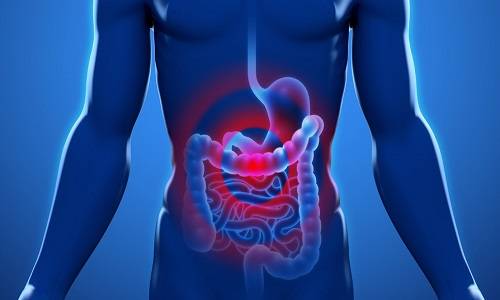-
TelehealthTelehealth
-
Bill PayBill Pay
-
Patient PortalPatient Portal
-
Refer a PatientRefer a Patient
-
Order FormsOrder Forms
-
Self ReferralSelf Referral
-
CareersCareers
-
NewsNews
At Biocare Oncology & Therapeutics, we work with gastroenterologists to treat gastrointestinal conditions. A gastroenterologist is a doctor that specializes in the study of the digestive system.

They diagnose and manage disorders like heartburn, irritable bowel syndrome, inflammatory bowel disease, and bowel movement issues. Biocare Oncology & Therapeutics provides the most advanced specialty medications to treat gastrointestinal disorders. We specialize in injectable, infusible, and oral drugs to provide our patients with the best therapeutic option suited for them. The most treated gastrointestinal disorders are irritable bowel syndrome (IBS), Crohn’s disease, and ulcerative colitis. The medications we offer may be self-administered in the comfort of your own home or may require a healthcare provider to administer it for you at our Oncology & Therapeutics center.
Irritable Bowel Syndrome
Irritable Bowel Syndrome (IBS) is a set of symptoms resulting from disordered sensation or abnormal function of the small and large bowel. Irritable Bowel Syndrome is characterized by crampy abdominal pain, diarrhea, and/or constipation, but is not accompanied by fever, bleeding or an elevated white blood cell count.
IBS is common – 10% to 15% of people in the United States have it. It is more common in women, but anyone can be affected. IBS is a lifelong problem that can be challenging to manage. But it does not cause more serious problems like colon cancer.
What Are the Symptoms of Irritable Bowel Syndrome?
Signs and symptoms can range from stool changes including diarrhea or constipation, gas, and bloating.
Crohn’s Disease
Crohn’s disease belongs to a group of conditions known as inflammatory bowel disease (IBD). Crohn’s disease is a chronic disorder that can cause inflammation anywhere along the digestive tract from the mouth to the anus (end of the large intestine).
Although Crohn’s disease usually occurs in the last part of the small intestine (called the ileum) and the beginning of the colon (the cecum i.e., the large intestine), it can develop in patches or involve anywhere along the digestive tract. The inflammation caused by Crohn’s disease can penetrate through the outer layer of the lining into deeper layers and even penetrate into adjacent organs. When this occurs, the “tunnel” that develops is called a fistula.
What Are the Symptoms of Crohn’s?
Signs and symptoms can range from mild to severe and vary depending on the part of the digestive tract affected. Symptoms usually develop over time but can occur suddenly.
The most common symptoms of Crohn’s disease are:
Ulcerative Colitis
Ulcerative colitis (UC) is when the lining of the large intestine gets inflamed. The large intestine is made up of the colon and the rectum. When this gets inflamed, symptoms of UC start. UC involves the rectum in everyone. But in some people it can affect the whole colon. UC belongs to a group of diseases called inflammatory bowel diseases. The other main one being Crohn’s disease (CD). Though it was once thought that UC and CD were different, as many as 10% of patients can have features of both.
What Are the Symptoms of UC?
These depend on how bad the inflammation is and the amount of the colon that is involved.
In mild to moderate inflammation, symptoms can include:
When more severe inflammation is present, patients often develop:
Disclaimer: The material and content contained in this website is for general health information only and is not intended to be a substitute for professional medical advice, diagnosis, or treatment. Users of this website should not rely exclusively on information provided in this website for their own health needs. All specific medical questions should be presented to your own health care provider